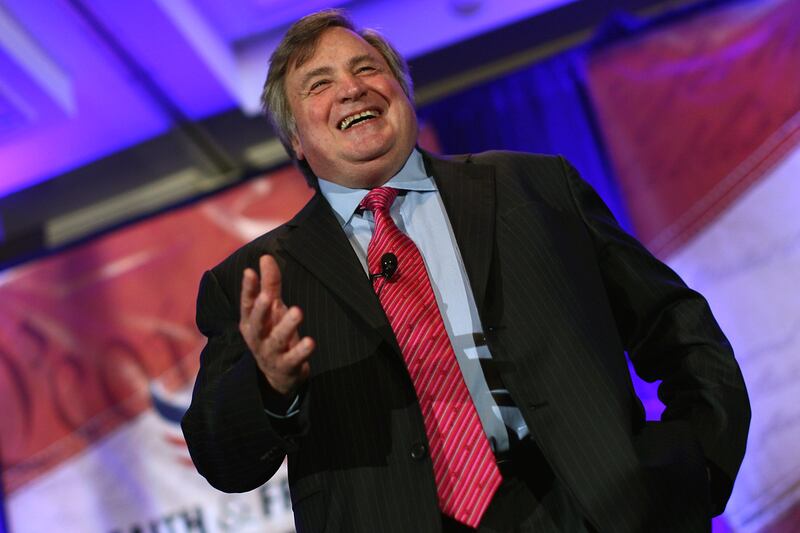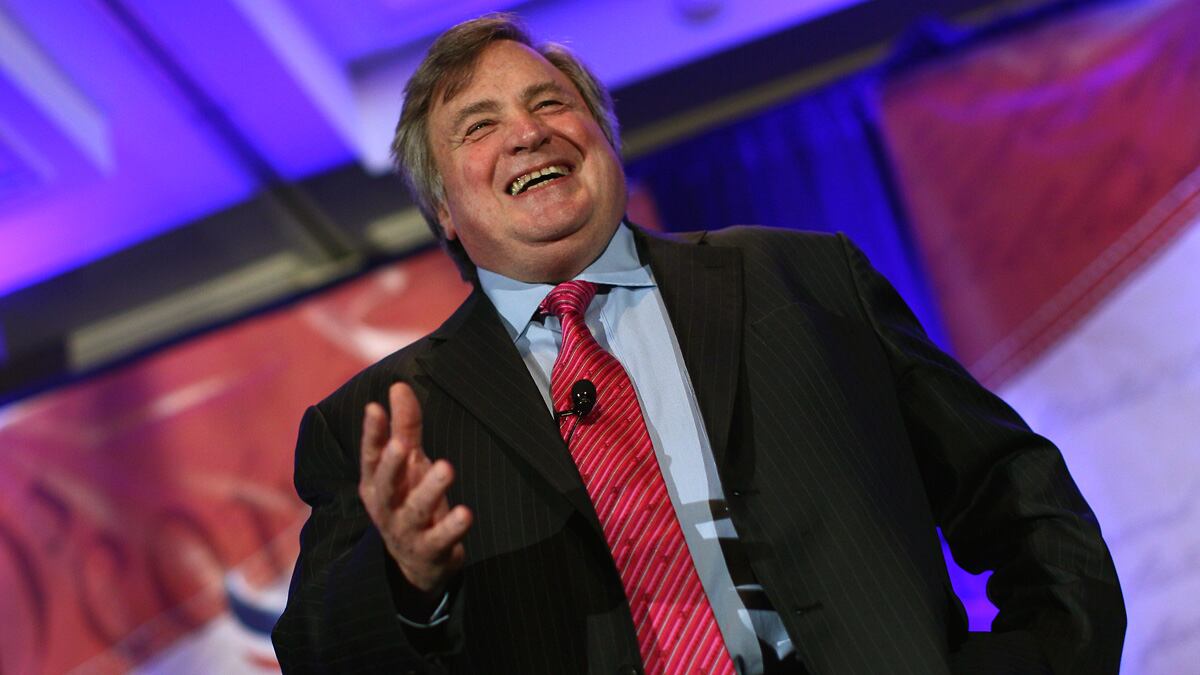Sifting through the wreckage of the 2012 election, conservatives are realizing the price of staying inside their cocoon. The unskewed polls, the partisan cheerleading and complaints about the MSM’s liberal bias, the rigid think-tank reinforcement—it all led the right into a state of denial about the election, and a disconnect from modern American culture.

Perhaps the most powerful driver of this galloping group-think? Money.
The rise of partisan media has created financial incentives for columnists, pundits, and pollsters to try and please ideological employers with pronouncements that resonate with the faithful. After all, nothing gets clicks like confirmation bias.
The competition too often becomes about who can outflank their fellow travelers. Natural partisan affinity gets forced into something more militant, with substantive calls for common ground treated as signs of weakness. This dynamic fuels polarization in our politics because even congressmen look to partisan media for their clues about just what the base might want, rather than what is right or practical in terms of actually solving problems.
That in turn creates distorted policy debates, where politicians and partisan journalists (the phrase should be an absurd contradiction, but it is not) put their own independent perspectives through a filter, calibrating their short-term interests against what they might really believe would be in the long-term best interests of the nation.
The intellectual dishonestly usually comes in the form of soft collusion—a reluctance to criticize extreme voices on their own side of the aisle in public, even as they are dismissed in private. Team-ism drives the coverage because team-ism drives the funding. There is no profit in making enemies of people who might sign your next paycheck. There is no quicker career-killer than whispers of “disloyalty” to the partisan cause. And all this is reinforced by socialization—the separate social circles that conservatives and liberals travel in, especially in Washington, D.C., and New York. The days of William F. Buckley and Murray Kempton being genuinely good friends seem like a distant dream.
Dick Morris is a prime example of a partisan hack posing as a pollster and analyst, and as part of his mea culpa for publically predicting a landslide for Mitt Romney he essentially admitted to Sean Hannity that he was trying to create his own reality-distortion field: “There was a period of time when the Romney campaign was falling apart, people were not optimistic, nobody thought there was a chance of victory and I felt that it was my duty at that point to go out and say what I said.” This is a naked admission that his political analysis is little more than partisan propaganda —and yet what’s most striking is how dog-bites-man it seems, an acknowledgement of the obvious.
Of course, the idea we once had a perfectly objective press is naive. But we did have a newsroom culture that at least aimed for objectivity, knowing it would fall short but striving to meet that mark. The rise of partisan media on the right was predicated on the idea that unconscious liberal bias in the “mainstream media” was so pervasive it could only be balanced by explicit partisan bias. This quickly balkanizes our civic conversation, undercutting the essential idea behind my favorite quote by the late senator Daniel Patrick Moynihan: “everyone is entitled to his own opinion, but not his own facts.”
As David Frum and many others have experienced, the polarizing group-think has impacted think tanks as well. And here too, money is a driving force. Donors encourage the polarization—especially conservatives in the age of Obama, repeating the mistake made by liberals during the Bush years. There is a feeling of persecution—feeling being the operative word—that has replaced innovative solutions with an ideological litmus test. These think tanks are all technically nonpartisan for tax purposes, but as the parties have become more ideologically polarized, the think tanks increasingly function as party organs that defend hyperpartisan perspectives, and whose views shift not with the facts, but with their party’s political needs. (Tevi Troy wrote an excellent and unflinching analysis of this dynamic in National Affairs.)
The problem has grown with the proliferation of online partisan media. Pundits put out a shingle with a new website and go around asking the usual suspects for money to get them up and running. On the positive side, the pseudo-venture-capital model has allowed journalism to evolve while print is under existential pressure, and it provides the ancillary benefit of higher-than-market salaries for the founders. But it also means that the same high-dollar party donors who fund think tanks now provide the seed funding for partisan media outlets—completing the feedback loop. The places that produce ideas, the politicians who pick them up, and the reporters who judge them should not all being drawing checks from the same banks.
Would-be media moguls and partisan players rush to take the calls of big-dollar donors, just as senators and congressmen do. Those donors have disproportionate power because of their disproportionate wealth—the million-dollar donation that’s a rounding error to the big backers is lifeblood to many partisan media influencers.
On the conservative side of the ledger, the irony is compounded by leading writers and thinkers who pay homage to free markets while living off the largess of a few wealthy donors.
The creation of a partisan ideas economy is fueling the polarization in our politics. It is distorting and dumbing down our debates. It was a pleasure to hear Louisiana Gov. Bobby Jindal take aim at this dynamic in his post-election assessment, saying: “We’ve also had enough of thus dumbed-down conservatism. We need to stop being so simplistic, we need to trust the intelligence of the American people and we need to stop insulting the intelligence of the voters.” But the partisan media cocoon that Jindal and others often cater to as part of their career advancement has essentially created the environment he is now decrying.
In politics, the dictum ‘follow the money’ usually leads to uncomfortable truths. The same is now true in partisan media. It has led to a dishonesty in our civic debates that undercuts the essential quality opinion journalism must have to be successful, best explained by Ed Murrow: “To be persuasive we must be believable. To be believable we must be credible. To be credible we must be truthful.”
It is in danger of being replaced by what Christopher Buckley’s antihero Nick Naylor described as “the Yuppie Nuremberg defense” in Thank You for Smoking: “everyone’s got a mortgage to pay.”





